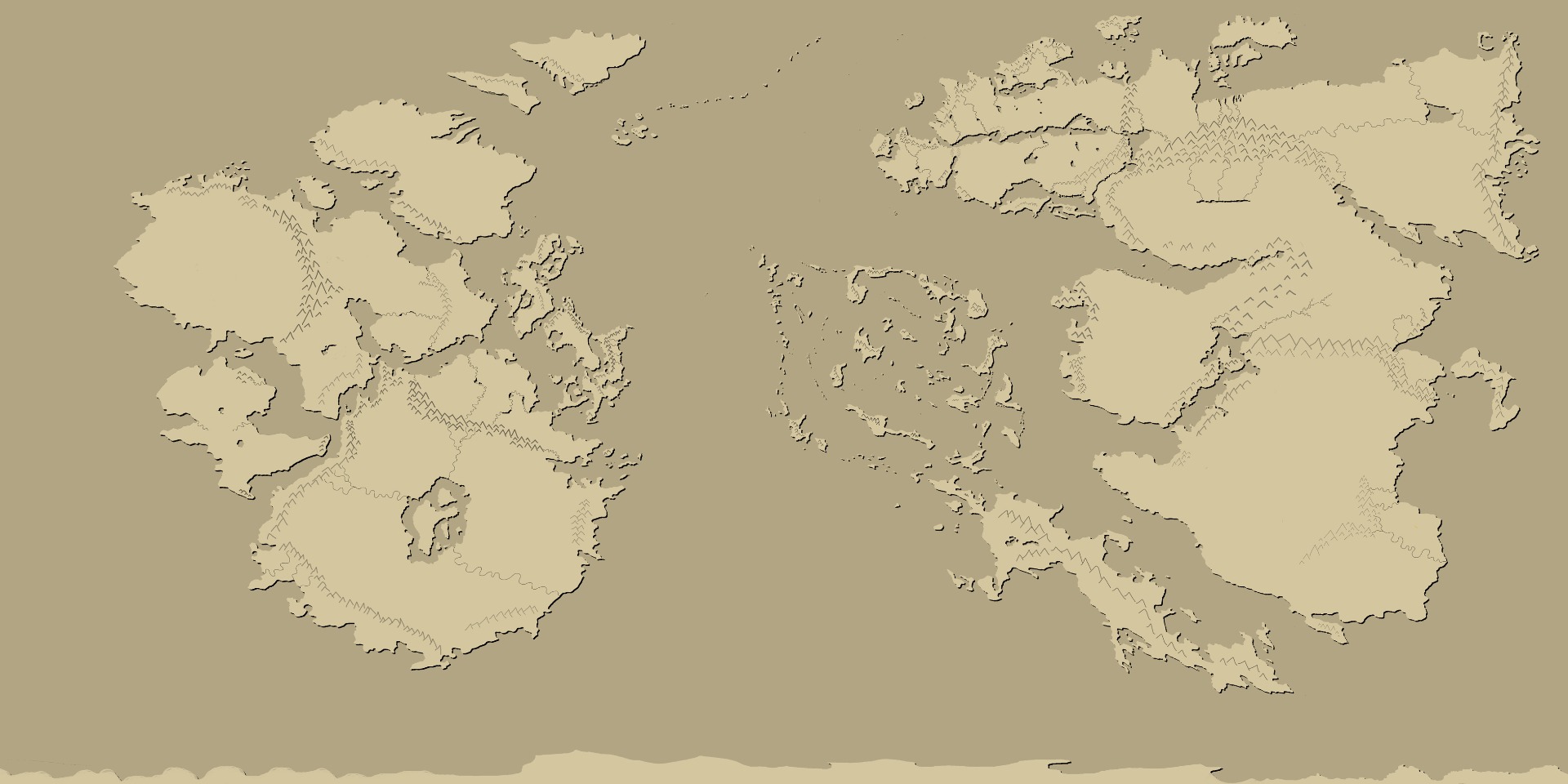
Her majesty's Imperial Commonwealth
Her majesty's Imperial Commonwealth
Government: Constitutional Monarchy
Head of state: Queen Linnéa I
Capital: Anlog
Ruling race: Human
The Commonwealth is arguably the largest of the great empires of Evperia. Being a constitutional monarchy, it is ruled over by Queen Linnéa I. Her time as regent has been the longest so far with nearly 50 years on the throne. The commonwealth presents itself as a champion of moral and reason with a purpose to spread their enlightened ways to the rest of the world, but at its core however the commonwealth is a trading nation. Being an empire is more of a necessity than anything to secure trade routes and resources which enables them to flourish.
Culturally the commonwealth believes in the strength of work, and purity of the soul through the sweat on one's brow. The expectations of the individual are to act in a sane and rational manner, respecting the order of things, and always strive for the betterment of oneself and society. However, life in the commonwealth is not as simple and oftentimes it is the exact opposite. The reality for many that live in the empire is a hard and bleak existence, especially among those that live in the overcrowded cities and work in any of the many industries that make up the backbone of the empire. Many suffer from alcoholism and those that don't find the bottle to be their solution may find their way into one of many smoking dens where they are offered other means of release from their dreary existence. Prostitution is likewise used as a release, something the higher classes profess to be a stain on the moral fabric. At the same time it is something that is turned a blind eye on rather than trying to stop, especially since the admiralty unofficially condones the practice as a way to keep soldiers and officers in line during their long time of service in the navy. Life outside of the cities is not much easier as the majority of the population still labor in agriculture. But with improvements gained from using machines, the work in the fields has become more efficient and increased yields help fuel the mighty empire. Despite this the rural citizens still struggle to make ends meet.
A solution for many to escape the harsh life as either peasant or factory worker is to join the military. The royal navy of the commonwealth is the largest among the great empires, both at sea and in the air. The army consists mainly of paid military with a lesser portion of conscripts. There is however a clear culture of cronyism in regards to who becomes an officer, where nobles get ahead by paying for ranks, with the outcome that many ranking officers more often than not proves to be downright incompetent.
The military has three main branches; Infantry, Marine and Airborne. Each branch has their own distinct uniform and soldiers are equipped with rifles, while officers use revolvers. All soldiers and officers also have a small armor piece, seated over the heart, with insignia and rank engraved. Lower officers have gilded details on iron base while high officers have a gilded base with silver details. The armor piece is trinitum enhanced, making it resilient to both damage and wear.
Lately some experimental equipment has been fielded but on a very limited scale, such as auto loading rifles and fast firing pistol caliber carbines.
The empire has big plans on expansion and stands ready to fight on multiple fronts if needed.
The history of what was to in modern times become the commonwealth was laid nine centuries ago as the tribes of the En-lok people settled lands west of the Greenwood forest after being driven away from the fertile plains of the western twin mountain by the ever expanding Medtrian empire. This resettling would usher a period of conflict with the barbaric people that already inhabited the area. Suffering continuous skirmishes where the barbarians burned crop fields and stole or killed livestock, the winter months led to starvation where many died. Bit by bit the En-lok were pushed down to the coast where they had to make a final stand. In an attempt to halt an impending assault from the barbarians in their weakened state, the chieftain Anlog ordered that the bodies of the dead be put along the palisade walls and surrounding dikes, with arms and armor, made to look like they were ready and waiting for the attack. When the barbarians came and saw the many armed people standing up straight all along the defenses, they believed the numbers of the defenders were far superior to them and they withdrew. As luck would have it, at the same time a harsh blizzard moved in and froze all corpses into place, making it impossible to move them away from their positions. Throughout that winter, the dead stood guard against any would be attacker and every time that the barbarians came, they always saw that long line of defenders. Only once did they try a charge, but the survivors met them with hails of arrows, decimating their forces. The bodies of all fallen barbarians were left out through the winter, as a reminder to any would be attacker that the people of En-lok were not to be trifled with. As spring came and the ice and snow began to thaw, the widows of the fallen enemies came to ask permission to bury their dead. It became clear to the chieftain that those barbarians were in as much need as his own people and such invited them to become part of their tribe. This not only bolstered the numbers of living, it also became the foundation for the future kingdom of Enlo, which would be ruled and expanded by Anlog's second son, historically known as Great King Winlog.
About four centuries after the founding, the kingdowm of Enlo would expand its borders trough both conquest and diplomatic deals with neighboring rulers. Known now as the great kingdom of Enlo, it would enter a long period of strife and turmoil know as the war of thorns. The descendants of Great King Winlog had kept the throne but as prosperity and stability had made for soft men, intrigue among the nobles became as much pastime as a nuisance. What led to the war was a split in the bloodline, where on one side was the first born of current ruler King Dominic the calm, a daughter named Rosett, and on the other side her younger half brother Grimhalg. By tradition, succession of rule was to be given to the eldest male child, though many within the court believed that letting Grimhalg become ruler would be a disaster as it was well known that he was a slave to his vices. Therefore a plot was devised to at any price hinder him to inherit the throne. Part of this plan was to have Rosett become ruler instead and also, in their minds, she would be easier to control. Incidentally, as fate would have it, King Dominic would succumb to sickness soon after the plot was devised. Grimhalg did not linger and moved quickly to seize the crown, planning to have the coronation done as soon as his father was sealed in the royal tomb. As the ceremony was to begin, the plotters all rose and declared their oaths towards the old king rescinded and instead they swore loyalty to Rosett, as the first born child of the king. Those loyal to Grimhalg became furious and declared anyone not swearing fealty to the rightful heir as traitors and forfeit of any holdings and titles. As this started the war of thorns, the land would be engulfed in flame and turmoil of civil war for nearly half a generation, ending several noble bloodlines and losing two thirds of grown men on the battlefield. In the end Grimhalg would suffer the ultimate defeat. After one decisive battle at the Siege of the city of Anlog, what should have been a clear victory for Grimhalg turned into a loss as his vanity made him order his troops into a death charge, needlessly ascrifing them to Rosett's dug in defenders. As the knights fell to spear walls and foot soldiers to arrows, the nobles that had supported Grimhalg turned against him and cut him down on the battlefield. They then broke the siege and asked for a parley where they offered to surrender and swear fealty to Rosett. The Queen to be accepted the fealty of the young and new nobles, but put the old ones that had once betrayed her to the gallows. While it removed any debt of blood, it also sowed some contempt among the nobility, even among those that had been loyal since the start. Fearing further repercussions and with the fear of a continuation of the civil war, the nobles came together and put forth a charter declaring that sworn nobles where to be given fair judgment in due legal process, where he may not be executed for treason or high crime nor lose his rightful possessions unless found guilty by a council of his peers. Tired of war, Rosett agreed to sign, and by doing so laid the foundation to the legal counsel of nobles and later the noble parliament of representatives. She was crowned queen and earned the moniker of "the wise mother".
It would take multiple generations for the kingdom
to regain what had been lost. Especially the period just after the end of the war of thorns, named the years of struggle, as it would
take years for relations to be mended
as well as it would be many meager years as there
were not enough
peasants to work the fields.
